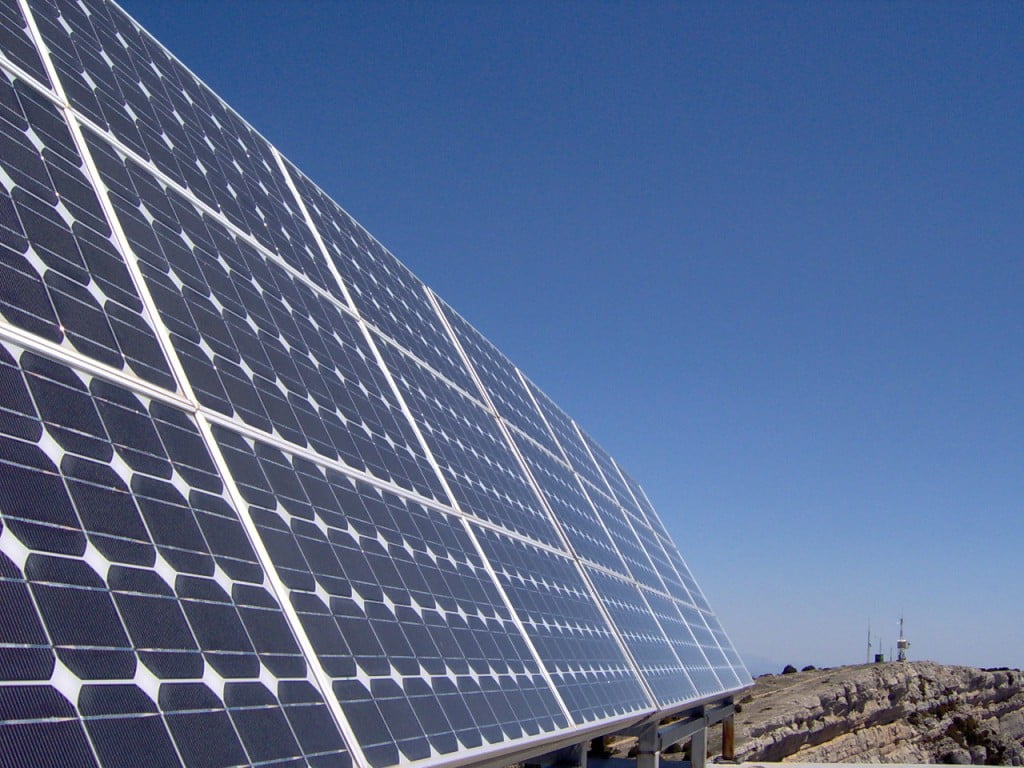Generating energy from the sun would be more practical if not for two huge drawbacks: The expense of the silicon material that converts light to electricity, and the large tracts of land needed for solar farms.
By solving both problems – and introducing unexpected side benefits, too – Solaris Synergy captured first place in the Israel National Cleantech Open IDEAS Competition at Tel Aviv University’s Akirov Institute for Business and Environment in November. Sponsors of the international competition aim to find, fund, and foster entrepreneurial ideas that address worldwide energy, environmental and economic challenges.
At Solaris headquarters in Jerusalem’s Har Hotzvim Industrial Park, co-founder and CEO Yossi Fisher explains that each Lego-like module of Solaris’ Floating Concentrating Photovoltaic (F-CPV) system is faced with a curved mirrored film that clusters the sunlight into a thin line. Since only that five percent of the surface needs a silicon cover, Solaris uses relatively little of the costly material.
“Because we don’t use as much silicon, we have enough money for mirrors and other construction material, and still remain cost-effective,” Fisher tells ISRAEL21c. Plus, since silicon production releases contaminants into the air, using less is an environmental boon.
Sidestepping the need for large solar fields, Solaris is designed to sit on water. Constructed of lightweight plastic and fiberglass, a grid of connected modules can float on any fresh-, salt- or wastewater surface. Aside from sparing valuable real estate, this solar-on-water platform doubles as a breathable reservoir cover that significantly reduces evaporation and eliminates organic and algae growth.
…
To read the whole story, click here
Via www.israel21c.com
Related posts

Resilient And Nutritious New Plant-Based Milk Aims To Make A Splash

Chocolate From Cultivated Cocoa Comes Without Environmental Toll

Plastic Fantastic: Startup Takes PVC Back To Its Crude Oil Roots




Facebook comments